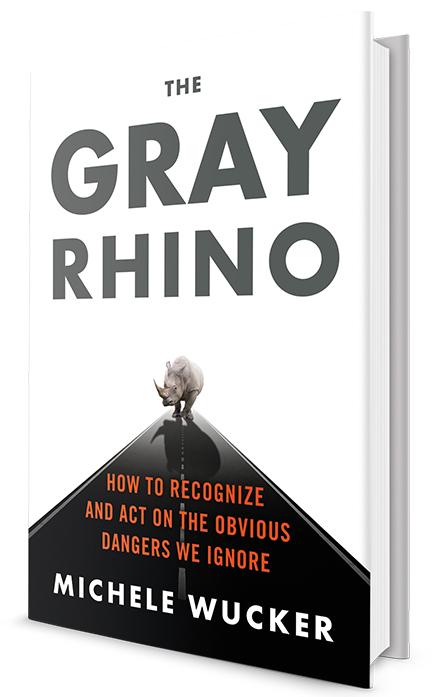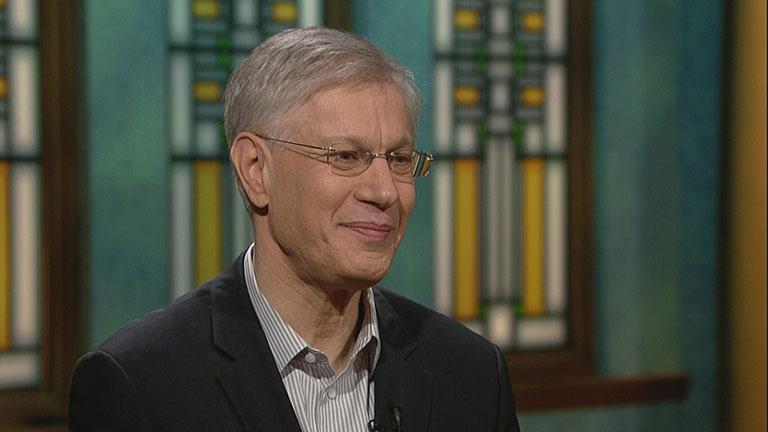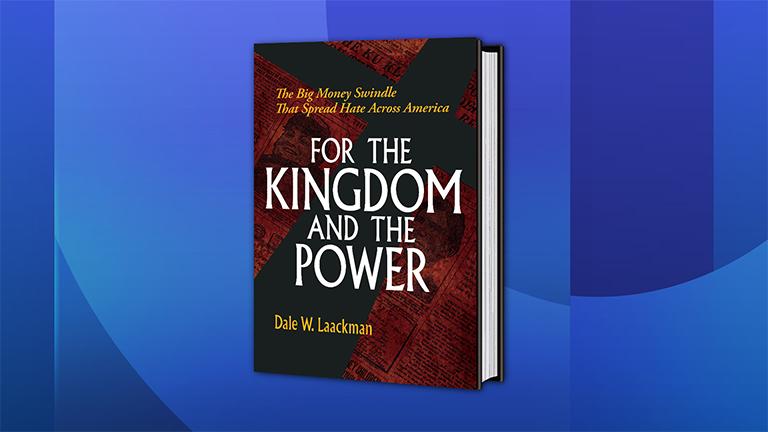From climate change to leaky roofs, disasters big and small can often be avoided if the warning signs are recognized and acted upon in time. And while it can be easy to see the crisis approaching, it's not always easy to know when or how to react, even when inaction is the worst response of all.
A new book likens these large, looming problems to a charging beast. The book is called: "The Gray Rhino: How to Recognize and Act on the Obvious Dangers We Ignore."
 Michele Wucker (Hal Shipman)
The book’s author and journalist Michele Wucker said she went with the “gray rhino” metaphor over “the elephant in the room,” because nobody talks about the elephant in the room.
Michele Wucker (Hal Shipman)
The book’s author and journalist Michele Wucker said she went with the “gray rhino” metaphor over “the elephant in the room,” because nobody talks about the elephant in the room.
“I felt that the language need something much, much more active, something that gave us a choice, that recognized how hard it is to deal with something – sometimes because it’s so big,” Wucker said.
Wucker saw this in action as a reporter in Argentina in 2001 when its economy collapsed after years of mounting debt.
“People really didn’t want to recognize what was inevitable. And that is very common – that denial of what’s really right in front of you is not just finance, it’s every day, it’s politics, it’s policy."
There are plenty of personal gray rhinos too, Wucker said. Health, relationship and career issues can have a big impact on individuals.
“That very humanness of it, when you combine all of the people in an organization, in a city, in a country and on the planet, that combines to create really, really, really big problems and very human problems,” she said. "I want people to feel like they have the power to do something."
Below, an excerpt from the preface of “The Gray Rhino: How to Recognize and Act on the Obvious Dangers We Ignore."
![]()
 Visiting Buenos Aires in March 2001, it was hard not to see the approaching economic catastrophe.
Visiting Buenos Aires in March 2001, it was hard not to see the approaching economic catastrophe.
“Closed” signs hung on many shop doors; taxi drivers carried on and on about the dire straits of the country in terms that were dramatic, even allowing for the Argentine penchant for embellishment; the cover of the leading newsmagazine featured a picture of the controversial finance minister wearing a Hannibal Lecter mask, referencing the horror movie The Silence of the Lambs, and the question “Did he have to cannibalize the country to save it?”
I had just come from the annual meeting of the Inter- American Development Bank in neighboring Chile, where bankers, ministers, and journalists furrowed their brows over Argentina’s financial problems, the Chileans no doubt feeling somewhat smug given their long- standing national rivalry with Argentina.
If you’d seen the numbers— foreign debt rising, dollars leaving the country, reserves plummeting, expensive restructurings that padded bankers’ pockets but didn’t do much to help Argentina dig out of its hole— you had to know that there was no way Argentina could keep up. With its peso pegged to the dollar, it couldn’t easily devalue the currency to jump-start the economy. Investors were selling Argentine bonds en masse; prices had fallen to what in retrospect was a still generous eighty cents on the dollar. But you didn’t have to see the numbers to come to this conclusion.
As a financial journalist specializing in Latin America, a few weeks later I wrote about a proposal, floated by a group of respected academics and Wall Streeters, for Argentina and its creditors to reduce its debt by 30 percent in order to avoid a bigger, chaotic “haircut” later. After I published the article, several Wall Street bankers called me to say that this was what needed to happen, but they couldn’t say so in public or they’d be fired. Even though traders spoke about Argentina’s pending default as a matter of “when” rather than “if,” no bank dared tell its shareholders that it would be the first to voluntarily part with a single penny of what it was owed. Nine months later, the worst came true. Argentina’s currency collapsed, and the banks that didn’t want to give up 30 percent ended up losing roughly 70 percent of their money.
“The Gray Rhino: How to Recognize and Act on the Obvious Dangers We Ignore.” By Michele Wucker. St. Martin’s Press. April 5, 2016.
Related Stories from “Chicago Tonight”
 Irvine Welsh Talks ‘Trainspotting’ Sequel and New Book ‘A Decent Ride’
Irvine Welsh Talks ‘Trainspotting’ Sequel and New Book ‘A Decent Ride’
April 12: Best known for his 1993 novel "Trainspotting," which chronicled a group of unemployed drug addicts in Scotland, author Irvine Welsh has been called the best storyteller in Britain. But for about 10 years now, he's lived in Chicago. We hear about his latest book, “A Decent Ride.”
 New Book Argues ‘Equal is Unfair’
New Book Argues ‘Equal is Unfair’
April 4: In the new book "Equal is Unfair," authors from the Ayn Rand Institute argue that fighting income inequality is misguided. One of the authors joins “Chicago Tonight” to argue his case.
 Book Uncovers Story of Spreading Hate Across America
Book Uncovers Story of Spreading Hate Across America
March 31: In 1920, the Ku Klux Klan was a small, disorganized group with just 3,000 members in Alabama and Georgia. Then a public relations firm saw an opportunity to make a bundle by building the Klan. Dale Laackman's book, "For the Kingdom and the Power: The Big Money Swindle That Spread Hate Across America" tells the little-known story.

